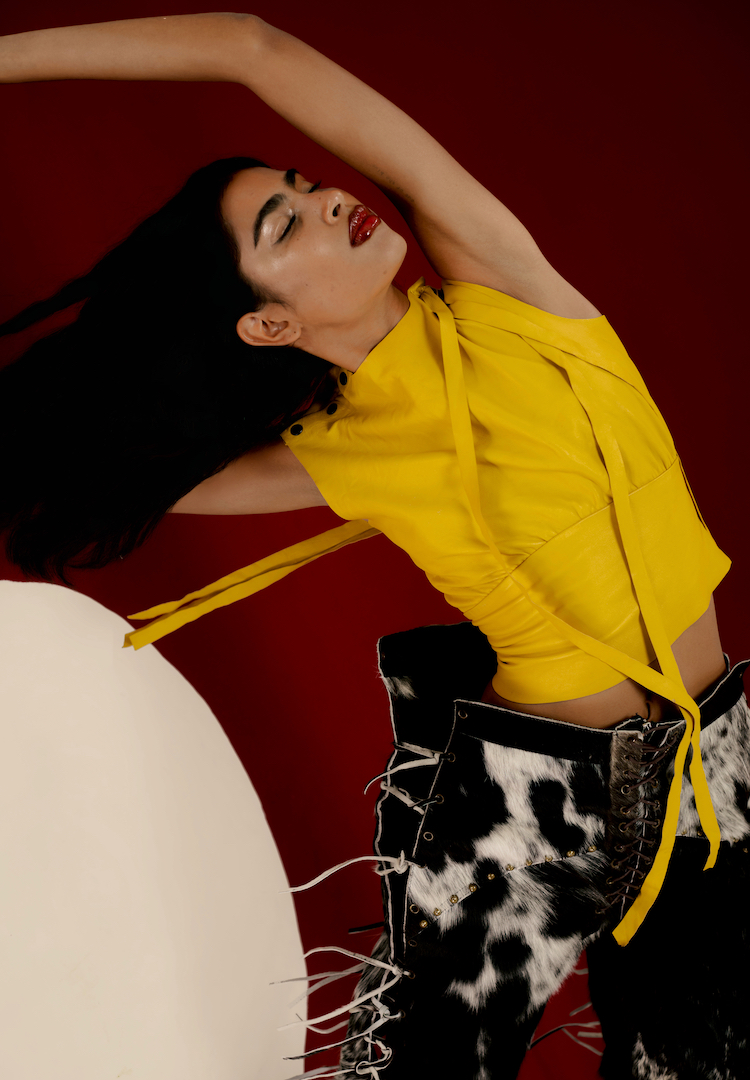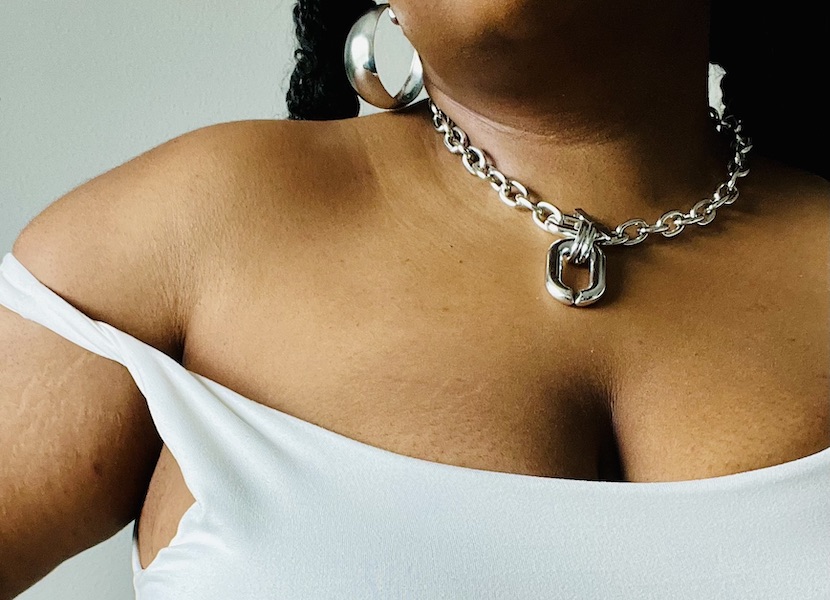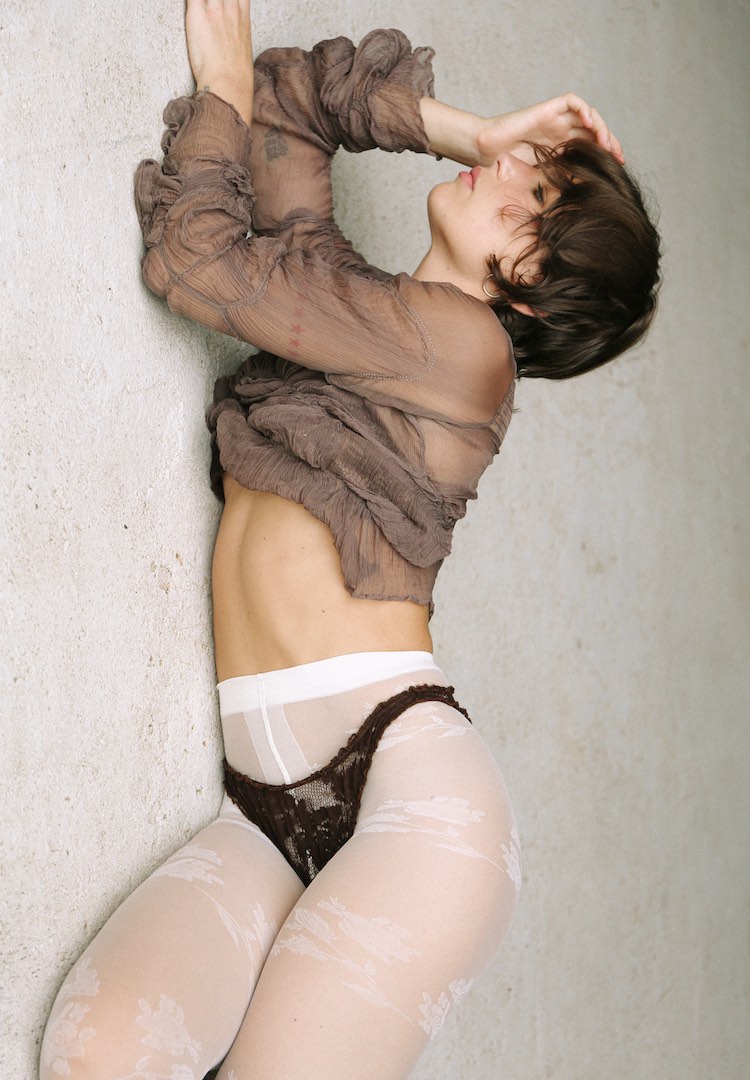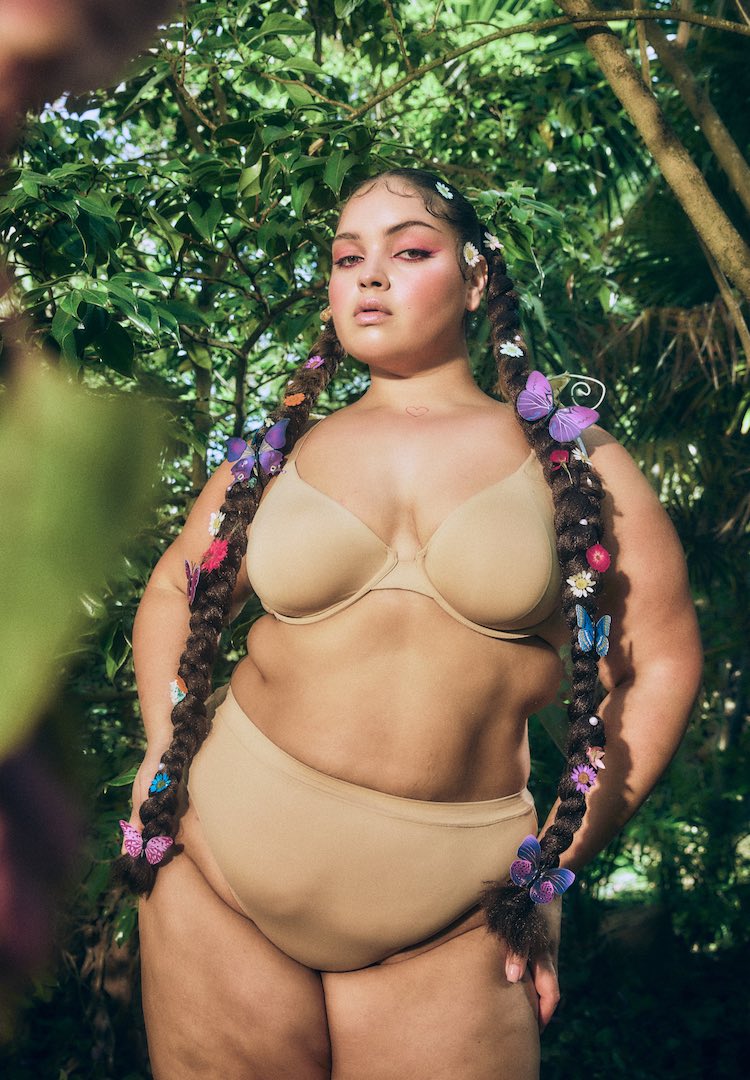Is it okay to go braless in the office?
WORDS BY SIA GARDINER
Unpacking the nippy-gritty.
I’ve gone most of my adult life not wearing bras. Depending on how you look at it, I was blessed, or cursed, with pretty small breasts. I went through the classic rite of passage of buying my first sports bra with my mum when I started developing and as I got older, I treated myself to beautiful pieces of lingerie here and there.
But ultimately, I bought and wore bras out of sentiment rather than necessity. By the time I was in the workforce, I was pretty much never wearing them.
I wasn’t always fully comfortable doing so, specifically at work. There were plenty of outfit changes or adjustments to make sure that my not wearing a bra wasn’t obvious to my coworkers. If the aircon was blasting in the office, and it was very obvious I wasn’t wearing one, I would pop on a jumper, even in the middle of summer.
For more fashion news, shoots, articles and features, head to our Fashion section.
That I was so concerned about hiding my bralessness at work is a classic example of how women’s bodies, specifically our breasts and nipples, have long been policed on the basis of gender. While it’s a matter of social justice that females and gender-diverse people should be allowed to go topless to varying degrees the way men do, it still somehow feels like a matter of professionalism, not a human right, when it comes to the workplace. So how do we navigate this? And ultimately, is going to work braless okay?
Neve*, 33, has worked in a number of human resources roles throughout her career, and the issue of dress codes has come up a lot in her line of work. “I’ve worked in a lot of workplaces and offices that had strict dress codes and attempted to manage what people wore to work, especially women,” Neve tells me. “I once got asked to tell a woman to go home because of her skirt length, because it was ‘unprofessional’. I quit that job that day.”
What Neve alludes to here is the perverse belief that it’s a woman or female-presenting person’s job to not distract male colleagues with their bodies – a truly antiquated and misogynistic idea that still informs many workplace dress codes.
The same can be said of going braless to work, and if it’s considered ‘unprofessional’ by your workplace purely because it will attract male attention, then you might want to question the values that are being upheld in your company. However, it’s also true that for many workplaces, displaying any kind of nipple or cleavage, however it’s gendered, is considered inappropriate. This could be wearing a mesh singlet to your job at a dentist’s office, or a teacher wearing a sheer shirt. It might not be considered best practice depending on your job.
So how do we know when and where it might be appropriate to let our chests be free? “It might be a little weird, but try to have a discussion with your manager or boss about your work’s dress code and try to find out the reasons behind these rules so you can work out if you align with their values or not,” Neve suggests. “If you’re not comfortable discussing it with direct management, seek out an HR advisor.
“It’s important to be clear on these [rules] before you make these decisions about how you dress. If you act in direct defiance of a work dress code by not wearing a bra, you can technically be fired so you have to be careful, even though this sucks! If you find out that would be the case and you don’t agree with it, you can make a decision about whether this is the right workplace for you from there. If you find out that this kind of dress code only applies to one gender, then that’s a discrimination case right there.”
Once you’ve worked out where your company and management stand, and how it impacts you, you have to work out whether going braless at work will actually make you feel more empowered and comfortable, or if it will do the opposite. For me, feeling constricted by a bra makes me feel less confident, and not having to wear one is a privilege I like to take where I can. For anyone whose unsupported breasts can actually create discomfort and pain, and wearing a bra is actually important for your health, then that’s a decision you make for your wellbeing and not for anyone else.
“The most important thing is that you feel safe and comfortable at work – you’ll be more productive if you are!” Neve says. As she rightly points out here, the prioritisation of comfort in our working lives is something we picked up at home during COVID-19 lockdowns. During this time, dressing for business became a very different matter, and people discovered that they might even be better at their jobs when they’re physically comfortable. What a surprise!
“The foundations of traditional workplace etiquette are based on such old standards of status though that we might not even fully understand why we still do them!” Neve notes. “If you tried to explain why suits and blazers are the epitome of professionalism and productivity and tattoos and piercings aren’t, you’d probably end up with some pretty conservative answers.”
Times are changing though, slowly but surely, and employees shouldn’t and can’t discriminate against you based on your appearance during the hiring process or enforce workplace dress codes without being able to provide good reasons for them. So maybe we’ll eventually get to a place of being more comfortable with our bodies that going braless to work won’t matter so much anymore – because really, what does it have to do with anything?
*Name changed to protect privacy.
This article was originally published no March 20, 2023.
For more on going braless at work, try this.













